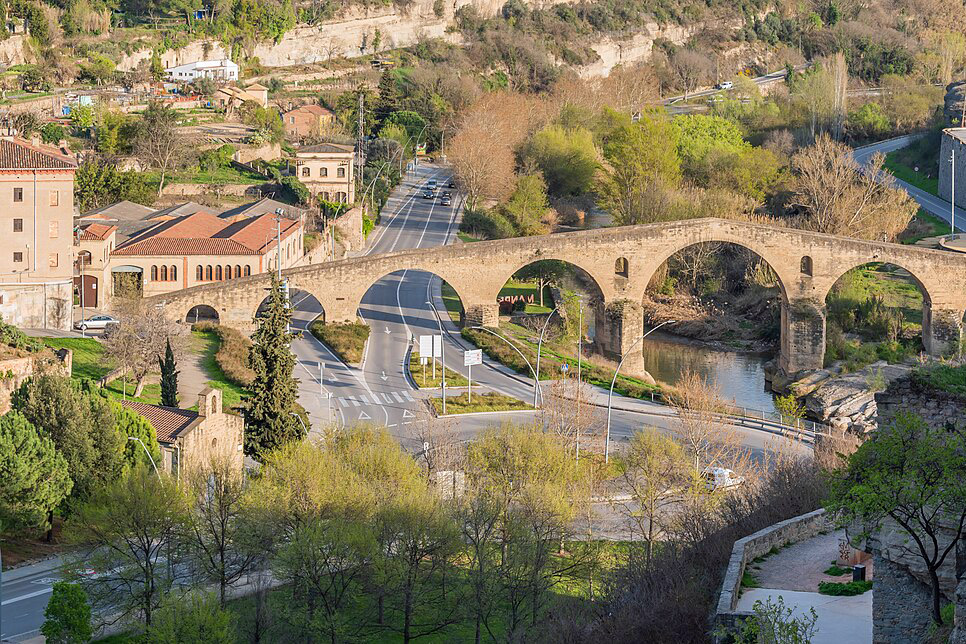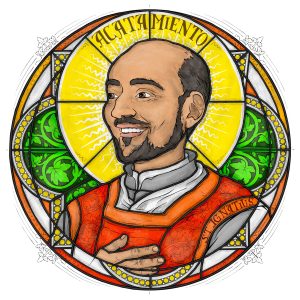
The medieval town of Manresa sits upon the banks of the Cardoner River, a little north of Barcelona in Catalonia, Spain. For devotees of Ignatian spirituality and Jesuits, Manresa is intimately linked to the story of St Ignatius of Loyola’s conversion and the place where his famous manual for prayer, the Spiritual Exercises were conceived.
In 1522, the Basque nobleman from Loyola made a detour to Manresa while on pilgrimage to Jerusalem. He had planned to go to Barcelona for a ship to Italy following a brief sojourn at the famous Marian shrine of Montserrat, but an outbreak of plague in the city appears to have forced him to layover in Manresa. What was hoped to be a short sojourn extended into months.
During this hiatus in his travel plans, Ignatius [1] dedicated himself to charitable works and a regime of rigorous spiritual practices that in time made him physically and mentally drained. Attacked by severe scruples, he despaired to the point of contemplating suicide. With the help of spiritual guidance from his confessor and his own gift of inner reflection, Ignatius’ eyes were gradually opened to an important spiritual insight. Whereas until then, he had trusted in his own will in seeking to imitate and even surpass the spiritual disciplines of great saints like Francis and Dominic.
Ignatius came to the realisation that God works with each individual according to their unique strengths and weaknesses. He discovered that every person can find holiness through seeking God in their own personal way, not through imitating others but by listening to the deepest feelings and movements of their own hearts. From these insights emerged what are called the Rules of Discernment, a key cornerstone of Ignatian spirituality and the Spiritual Exercises.

This unexpected layover in the town of Manresa proved a momentous event in the history of Christian spirituality. It provided the time and space Ignatius needed to go deeper within himself and find God’s will.
We might well ask what would have happened if there was no plague in Barcelona in 1522? Likewise, what would have happened if there was no Battle of Pamplona? No cannonball? What would have happened to Ignatius had those crises never occurred? What have we gained because of them?
The feast of St Ignatius (31 July) invites us to consider the crises in our lives, the events and misfortunes that force us to stop, to change direction, to let go of our ego and pride, our well laid plans, and force us to trust in God’s providential care.
Fr Robert Morris SJ
Director of the Sevenhill Retreat Centre, South Australia
[1] Ignatius’ birth name was Inigo y Lopez y Loyola, the Latinized name Ignatius does not appear until his enrolment at the University of Paris in 1528
